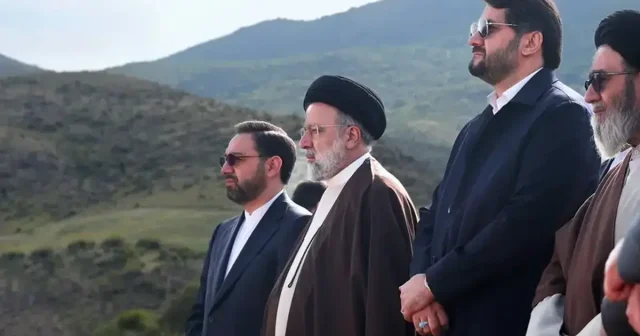Under the shadows of the helicopter crash that killed President Ebrahim Raisi and other high-ranking officials, Iran’s Cyber Police of have intensified their surveillance and repression.
Iran’s Cyber Police Chief Vahid Majid has declared the initiation of criminal proceedings against numerous individuals for allegedly disseminating “false and insulting” content on social media and online platforms about President Raisi and other officials who perished in Sunday’s helicopter crash.
Majid reported that within the last 36 hours, “550 specialized observations” have been made, resulting in the identification of 80 websites and the execution of 35 enforcement measures, including the issuance of summons and court referrals.
The Iranian regime has been secretive about the details surrounding President Ebrahim Raisi’s helicopter crash, maintaining tight control over the information that is released to the public. The opacity includes limiting media access to the crash site and closely monitoring the narrative circulated through official channels.
Shaghayegh Mohammadi, the wife of Esteghlal FC player Mohammad Hossein Moradmand, has reported receiving threats of arrest following an Instagram post she made, which featured a poem by the Iranian poet Hafiz that foretells the downfall of oppressors.
In response to the threats she posted defiantly, “I desire nothing but freedom, which is the right of all humans.”
Likewise, journalist and translator Manizheh Moazen is embroiled in a fresh legal conflict due to her reporting on Raisi’s death. She recently reshared a tweet highlighting Raisi’s involvement in the 1988 mass executions.
Iran’s government has declared five days of mourning, calling on the public to attend the commemorative ceremonies. Attendance is typically mandatory for government workers and students, while other citizens do not participate.
In Iran, media control tightens significantly during times of crisis, as the government seeks to manage public perception and maintain stability. Authorities routinely restrict access to the internet and block social media platforms to curb the spread of information that could incite public unrest.






















